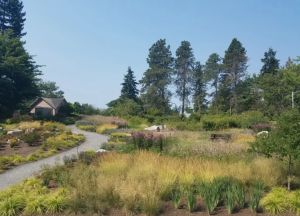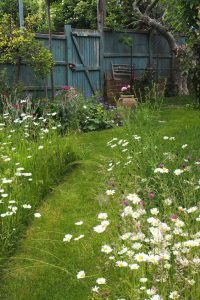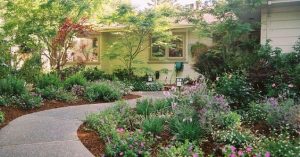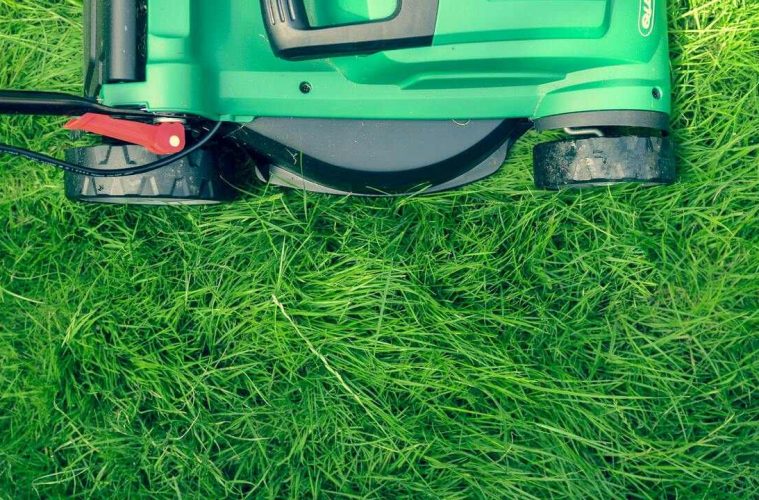A lawn is a staple of the urban ideal – it’s our prescribed notion of a tidy garden signifying a homeowner who cares about his property. In fact, body corporates in some estates will fine a homeowner for failing to keep a well- lawn – this is your civic responsibility!
At the dawn of Spring earlier this year, the City of Cape Town made a decision to only mow public parks until later in the year as part of an effort to advance conservation efforts to protect the Cape Floral Region’s Fynbos and Resnosterveld biomes.
Perhaps it’s time for a shake-up of our cultural perception of a neat, and classic garden. What if it’s skewed towards pretentious and irrational reasons? I would have likely got a hiding for suggesting this and trying to shirk my childhood chores.
But, what if manicured lawns became frowned upon? If wider society managed to condemn corporal punishment in the space of one generation, perhaps we can do the same with lawns. Then, not only will a kid avoid a hiding for failing to mow the lawn, they won’t have to mow it in the first place!
The case against lawns

Food glorious food
Lawns proliferated as a status symbol to prove a landowner was wealthy enough to own land to waste it – meaning that you did not have to grow food because you were no longer a peasant.
In 2021, the so-called “Cabbage Bandit” made headlines after he was fined for refusing to remove a vegetable garden outside his home in Pretoria. Djo BaNkuna was fined for ‘disturbing a municipal amenity,‘ – a forgotten roadside curb which he used to grow vegetables for the homeless.
Urban gardening is not just for the hipster, urban elites – it plays a vital role in contributing to food security in urban areas, and increasing access to affordable, fresh produce. The moral of the story is; if you can grow a great lawn, you can grow a cabbage.

The cabbage bandit
Think of the wildlife
Imagine you are a dwarf chameleon living in an urban area. Yonder lies a lovely shrub, a perfect habitat to perch yourself and catch some scrumptious six-legged fiends. You have just one obstacle: A wide, expansive lawn from one bush to another. You are halfway across the lawn, almost there, and then a crow or Nancy, the neighbourhood cat, swoops in and takes you as its next meal.
We tend to forget that our cities remain implicated in the natural environment which makes it really difficult for biodiversity to thrive. In terms of biodiversity, lawns are essentially a desert, serving very little to no role in an ecosystem.
Do you know that the rate of extinction among insects is eight times faster than that of birds or animals? Or that UN research found that one million species across the globe are facing extinction, and half of them are insects?
Leaving your grass to grow creates an insect-friendly environment, and all those wildflowers that we consider ‘weeds’ get an opportunity to flower, providing a vital forage source of pollinators like honeybees.

Save water
South Africa is not a high rainfall country, receiving 464 mm annually, most of it along the country’s east coast. One square metre of grass requires around 20l of water a week. Yes, veggies also require a lot of water but if you plant an indigenous garden, you’ll likely be able to leave it relatively unattended and it will take care of itself – saving you time and money.
What to do with an un-mowed lawn
Spring is the best time to stop mowing your lawn if you’d like to take a run at lawn-less life. Letting the grass grow wild isn’t the only alternative though. Consider adding stepping stones, a bird bath or water feature, and planting wildflowers among the grass.
No longer mowing your lawn doesn’t mean no longer curating your garden; it is, however, an opportunity to save water and encourage biodiversity. Here is some inspiration if you’re considering taking the plunge this spring. Wildflower gardens, urban meadows and edible gardens make for wonderful alternatives.

Written by David Henning
SEE MORE: 6 BENEFICIAL BUGS YOU WANT TO SEE IN YOUR VEGGIE GARDEN

